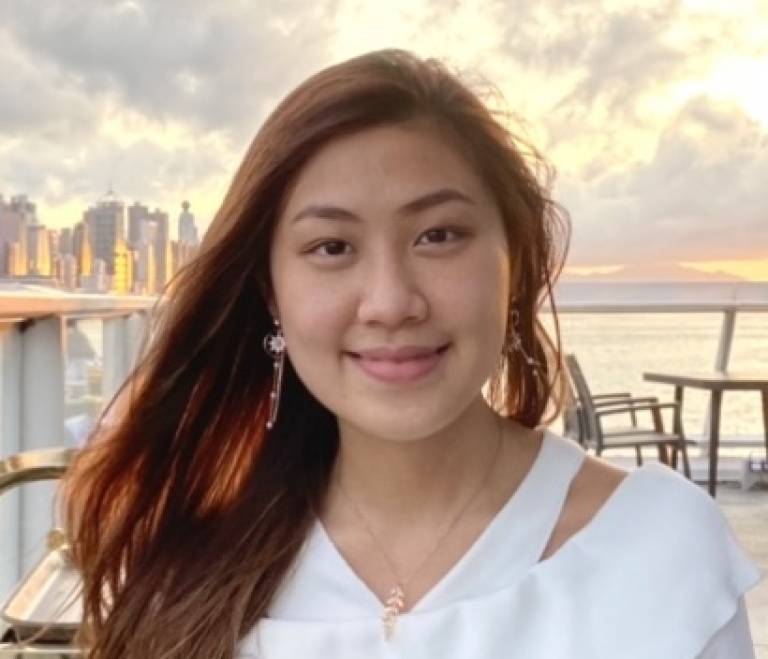Eugenia Kam Wing Nga

To mark International Day of Women and Girls in Science and International Women's Day, we caught up with Eugenia to ask her about her research, her role models and her goals for the future.
Can you tell us about what inspired you to study psychology?
When I was in junior high, my mother got diagnosed with breast cancer. I underwent a long grieving process of losing my most trusted emotional outlet, as I had to accept that she was not a “superwoman” with infinite capacity. By observing how others coped with this incident, I gradually became aware of how mental and physical health are intertwined. I also realised that, although I was fortunate to have social and financial support, individuals more vulnerable psychologically may experience difficulty in accessing help due to stigmatisation and service provision shortages. Thus, I believe that psychology is not only a way to learn about the complex human mind and behaviour using scientific and evidence-based approaches, it also has important clinical applications that can drive real changes in people’s quality of life.
What subjects in school did you enjoy/excel in that led you to enrol in psychology?
Interestingly, I developed a genuine curiosity about people and how our minds work during my studies of IB music in high school. As I learnt about the history of jazz and music from all around the world, I realised that the human mind is capable of many things!
Where do you hope studying psychology takes you, and what is your dream job?
My dream job is to become an all-rounded clinical psychologist. It is my dream to be able to improve people’s mental wellbeing using a holistic approach: through assessments and interventions, quantitative and qualitative research, and community work.
How can schools and universities get more young girls interested in STEM subjects?
Indeed, women are underrepresented in STEM. I think it is about empowering them and acknowledging their abilities, showing them that there are female role-models out there proving gender stereotypes wrong. Early interventions are important and there are numerous possibilities for increasing their engagement with the field.
Educational institutions should work towards implementing gender-balanced curriculums, place greater emphasis and educate students about the role and contribution of females as well as males in STEM, as well as guide parents and guardians to play a part in shaping the decision-making of young girls.
Who is your female role model and why?
My female role model will always be my mother. As a university professor, she is an inspiration to many. But no one really knew that she was fearless in the face of cancer, and truly showed me what unconditional love is. She has proved to me the importance of being a strong independent woman and has been encouraging me to pursue my dreams since I was a young kid, all of which I am forever grateful for.
Who do you admire in research and why?
I would pick my personal tutor Professor Essi Viding! Her research on Developmental Psychopathology, specifically investigations on how different developmental pathways contribute to persistent antisocial behaviour, provides great insight into why the typical socialisation processes can derail in those at risk for psychopathy, and yielded important clinical implications for the prevention of this developmental disorder. Her work in examining the neurocognitive consequences of childhood maltreatment further sheds light on the complex interplay between genetics, social development and cognitive neuroscience in innovative ways.
What academic superpower would you pick and why?
I would pick the ability to keep up to date with scientific research all around the world – by any means possible!
Do you have any skills or talents that most people don’t know about?
I absolutely love playing the violin! You may have spotted me at the 2020 PALS Christmas show, where I performed a bizarre medley. I was also a performer at the UCL Live Music society as well as a first violinist at the UCL Symphony orchestra.
What is your favourite thing to do in your spare time?
I love exploring London. From strolling along the canals in Camden to cycling in the parks, my checklist goes on and on… London never fails to amaze me!
What’s a goal you have for yourself that you want to accomplish in the next year?
Keep an open mind and make it known that mental health is just as important as physical health!
 Close
Close

